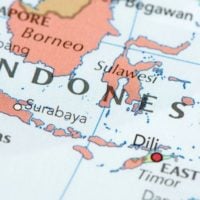Deadline: 23-Aug-20
UNDRR invites not profit-making organizations to submit grant proposals for “Strengthening disaster risk resilience through enhanced coordination mechanisms (Malawi and SADC)”.
UNDRR is the United Nations’ focal point for the coordination of disaster risk reduction, working with countries and a broad range of partners and stakeholders to support the implementation, monitoring and review of the Sendai Framework for Disaster Risk Reduction 2015-2030 in coherence with the 2030 Agenda and other instruments, for the multi-hazard management of disaster risk in development and the substantial reduction of disaster risk and losses.
Moreover, it issues grants, in line with UN Financial Regulations and Rules, to apolitical and not profit-making organizations to facilitate, implement or carry out activities related to UNDRR’s and the partner’s mandates and work programs.
Aim
- The project aims to work with Department of Disaster Management Affairs (DODMA), the Department of Climate Change and Meteorological Services (DCCMS), Department of water resources (DWR) and other stakeholders involved in an early warning for floods in order to establish data-sharing platform supporting the update, development, activation of standard operating procedures based on the four components of early warning systems, namely risk knowledge, monitoring and forecasting, communication and dissemination and disaster response.
Funding Information
- The maximum amount requested from UNDRR for the implementation of this project cannot exceed 135 000 USD.
- The duration of the proposed project cannot exceed 11 months, with expected completion by mid-2021.
Expected Outcome
- Technical advice shared on methodologies to conduct a gap analysis for EWS and trans boundary risk management in order to formulate recommendations and build a roadmap
- Web-based data-sharing platform available to support decision making for EWS for floods in coordination with sub-regional level (SADC) – the web-based platform should already be used in one or more governmental authority for decision-making purposes who have legal mandate to issue early warning
- Data needed for EWS identified and is visualized through a web-based data-sharing platform to support decision making
- Capacities of national and local authorities working in EWS enhanced to use a web-based data-sharing platform for decision making in the development and application of SOP
- Recommendations convened with national authorities to improve existing warning bulletins
- Enhanced capacities to use risk profiles into decision making with a focus on EWS and transboundary risk management
- Experience of stakeholders on the update, development, and application of SOP shared at the national dialogue peer-to-peer exchange with participating governmental stakeholders, UN system, NGOs, Academia and neighboring countries
- The national government is provided with guidance to further develop, update and apply SOP for floods EWS, exchange disaster-related data and use an open-source platform to support decision making
- Process and lessons learned captured.
Output
Indicators of achievement
- A web-based data-sharing platform is installed; access is granted to key users convened with the national stakeholders and is being used to support development/update of SOP for EWS in case of floods in Malawi in linkages with SADC. The web-based data-sharing platform should be operationally used in one or more governmental authorities for decision-making purposes that have a legal mandate to issue early warnings.
- The national government actively participated in and contributed to the update and development of SOP and dialogues and peer to peer exchanges, including neighboring countries.
- Lessons learned and good practices captured during national and sub-regional stakeholder engagements and associated meetings and events.
- Guidelines (how-to guidance) for the use of a web-based data-sharing platform in the update and development of SOPs and trans boundary risk management.
- Recommendations for the use and improvement of risk profiles for informing DRR policymaking, impact-based EWS, and transboundary risk management.
Eligibility Criteria
- The grantee should have a proven track record in working with national governments in the African Region in disaster risk reduction, early warning systems and inter-institutional coordination. Experience in supporting the local government with Disaster Resilience Scorecard for Cities and the development of local DRR strategies is an advantage. It should demonstrate the ability to work well with the national government, sub-regional institutions such as SADC, with guidance from UNDRR Regional Office for Africa.
- The national government of the target country and SADC should be engaged in all activities conducted and lessons learned should be capitalized. This includes, but not limited to, the national government departments in charge of disaster risk reduction, climate resilience, and local governments. The engagement should be extended to SADC and neighboring countries particularly for the component on trans boundary risk management. All coordination with counterparts should be discussed with UNDRR Regional Office for Africa.
For more information, visit https://www.undrr.org/vacancy/007-call-proposals-strengthening-disaster-risk-resilience-malawi-and-sadc









































